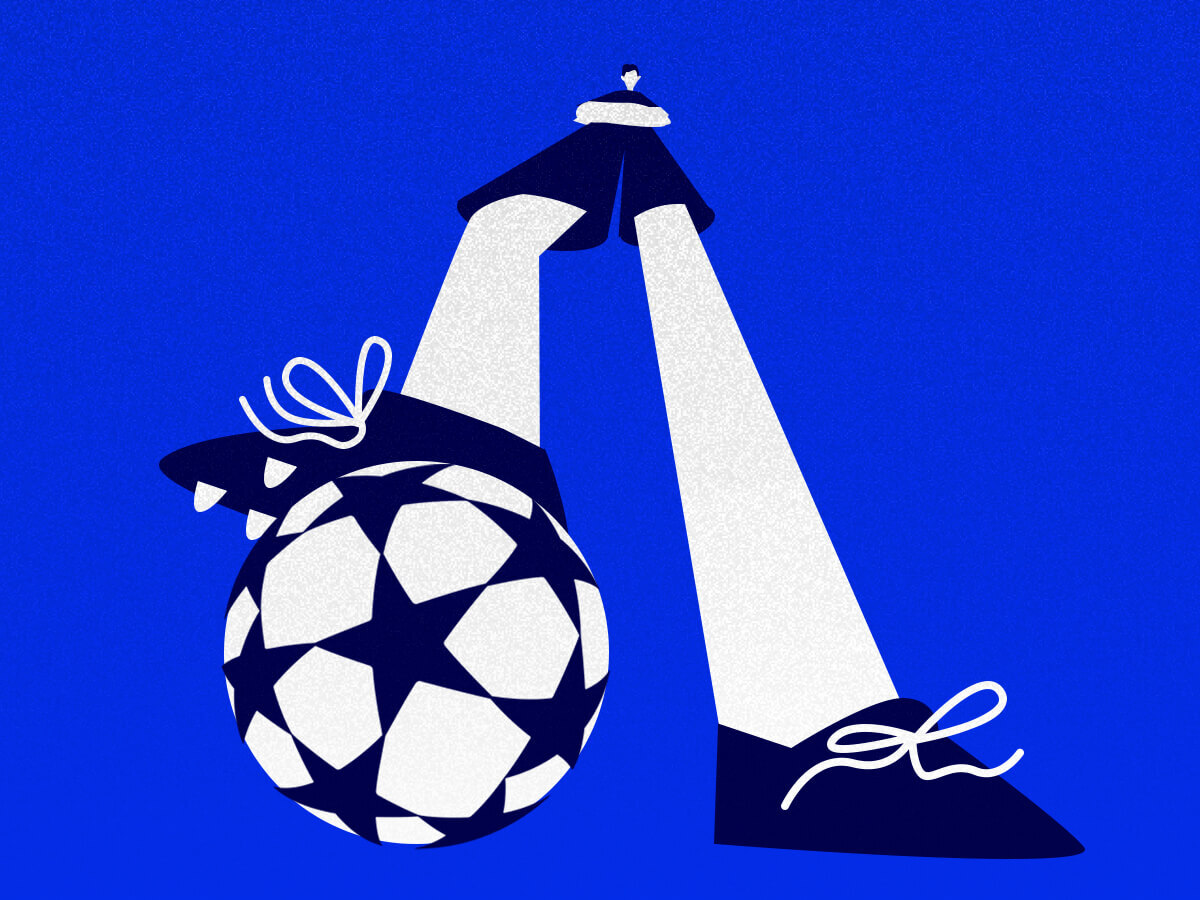The first European Champions Cup was held in 1955. It was a knockout competition with just 16 teams. Real Madrid were the most successful team in the early years, winning the first five editions between 1956 and 1960 — a record that still stands. In 1992, it was renamed the UEFA Champions League, which introduced group stages. Clubs like AC Milan, Bayern Munich, Barcelona, and especially Real Madrid — who have won 15 titles — have built their reputations on this stage.
The 2024/25 season was another exciting one for Paris Saint-Germain, as they finally won their first Champions League trophy. From that season, UEFA introduced the Swiss model, which means the main draw is expanded to 36 teams, with more matches throughout the season.
|
Category |
Details |
|---|---|
|
Tournament Dates |
September 16, 2025 - May 30, 2026 |
|
Total Teams |
36 |
|
Final Venue |
Puskás Aréna, Budapest |
|
Final Date |
May 30, 2026 |
|
Current Champion |
Paris Saint-Germain |
The Champions League Participants in the Season 2025/26
The matches are played on Tuesdays and Wednesdays as a rule. A total of 16 national associations will be represented in the league phase.
-
England (6): Arsenal, Chelsea, Liverpool, Manchester City, Newcastle, Tottenham
-
Spain (5): Athletic Club, Atlético de Madrid, Barcelona, Real Madrid, Villarreal
-
Germany (4): Borussia Dortmund, Bayern München, Frankfurt, Leverkusen
-
Italy (4): Atalanta, Inter, Juventus, Napoli
-
France (3): Marseille, Monaco, Paris Saint-Germain
-
Netherlands (2): Ajax, PSV
-
Belgium (2): Club Brugge, Union SG
-
Portugal (2): Benfica, Sporting CP
-
Norway (1): Bodø/Glimt
-
Denmark (1): Copenhagen
-
Türkiye (1): Galatasaray
-
Greece (1): Olympiacos
-
Czechia (1): Slavia Praha
-
Kazakhstan (1): Kairat Almaty
-
Azerbaijan (1): Qarabağ
-
Cyprus (1): Pafos
The winner of the 2025/26 season gains automatic qualification for the following Champions League, regardless of domestic league position.
Champions League Winner Odds 2025/26
The bookies think Liverpool and Barcelona are the most likely teams to win, because Liverpool have just kept their Premier League title and spent a lot of money on new players in the summer. Arsenal is the strongest British challenger, with odds of 6/1. Manchester City has lower odds of 9/1 because they didn't win any trophies in the 2024-25 season.
|
Team |
Odds |
|---|---|
|
Liverpool (England) |
|
|
Barcelona (Spain) |
|
|
Arsenal (England) |
|
|
PSG (France) |
|
|
Real Madrid (Spain) |
|
|
Bayern Munich (Germany) |
|
|
Manchester City (England) |
|
|
Chelsea (England) |
|
|
Napoli (Italy) |
|
|
Tottenham (England) |
Champions League Betting Odds: What You Need to Know
The odds and betting limits are high for Champions League games. There are several important things to know about this competition:
The favourite team wins in approximately 65% of Champions League matches. In the 2023-24 season, 80 of the 123 games were won by the top team, with only 18 won by the weaker one. But in knockout tournaments, there are often unexpected results. For example, Real Madrid were expected to lose in several playoff stages during their 2023-24 victory.
The schedule is very important. Having a lot of fixtures can have a big effect on choosing the team and how well they play. Premier League clubs have particular challenges with their domestic commitments. When important league matches are followed by Champions League fixtures within 72 hours, teams often have to change their players and tactics.
Goal-scoring trends are on the rise. The data shows a clear upward trend, with the 2024/25 season reaching 3.27 goals per match—the highest in recent Champions League history. This supports the betting strategy of targeting Over markets, particularly given that most bookmakers still price totals based on historical averages around 2.8-3.0.
|
Season |
Average Total |
|---|---|
|
2024/25 |
3.27 |
|
2023/24 |
3.08 |
|
2022/23 |
2.85 |
|
2021/22 |
2.82 |
|
2020/21 |
2.85 |
|
2019/20 |
2.98 |
British Clubs in Champions League 2025/26
No league has sent more clubs to the Champions League than the Premier League—six this season. It’s another reminder of just how powerful English football has become. Here’s a look at how each side is shaping up.
Liverpool
All eyes are on the Reds after a staggering summer outlay of more than £345 million. The headline signing was Alexander Isak, who arrived from Newcastle for a Premier League record £125 million. Under Arne Slot, Liverpool look far more balanced—tighter in defence and sharper in front of goal. That combination delivered them the Premier League title last season with the second-best defensive record in the division.
Arsenal
The Gunners finally look ready to push for Europe’s top prize. They splashed £224 million in the transfer market, bringing in Viktor Gyökeres from Sporting Lisbon for £54 million after a prolific 54-goal campaign in all competitions, including international. He could be the answer to Arsenal’s long-standing striker issue. With Mikel Arteta tied down until 2027 and a new 1-3-2-2-3 build-up system strengthening the midfield, there’s a real sense of stability and momentum in North London.
Manchester City
It was a season to forget for City: no silverware and only third place in the league — Pep Guardiola’s worst year at the club. The summer saw heavy investment in defence, but concerns linger about squad depth and the ageing of their key players. Still, with their high UEFA coefficient and plenty of Champions League experience, City remain one of the favourites on paper.
Chelsea
Enzo Maresca’s project is still in the rebuild phase, but Chelsea boast the youngest squad in the Premier League—average age just 23.3 years. The summer signings were aimed at adding experience and cover, especially in case injuries strike. The Blues are unpredictable; their constantly evolving style makes them hard to pin down, which could work to their advantage.
Newcastle United
The Magpies return to the Champions League despite losing star man Alexander Isak to Liverpool. His exit forced Eddie Howe to rethink the attack, with Bruno Guimarães and Anthony Gordon stepping up creatively. Newcastle’s trademark high press suits European football, and their energy could cause problems for even the biggest names.
Tottenham Hotspur
Spurs are the real wild card. They finished just 17th in the league but booked their Champions League place thanks to Europa League glory. Totenham has appointed Thomas Frank as their new head coach on a contract that runs until 2028. Frank moved from Brentford. His tactical style focuses on a more pragmatic and disciplined defence, as well as organised counter-attacks, instead of Postecoglou's high-risk attacking approach. This could make Tottenham more resilient in Europe, particularly in away games.


























































